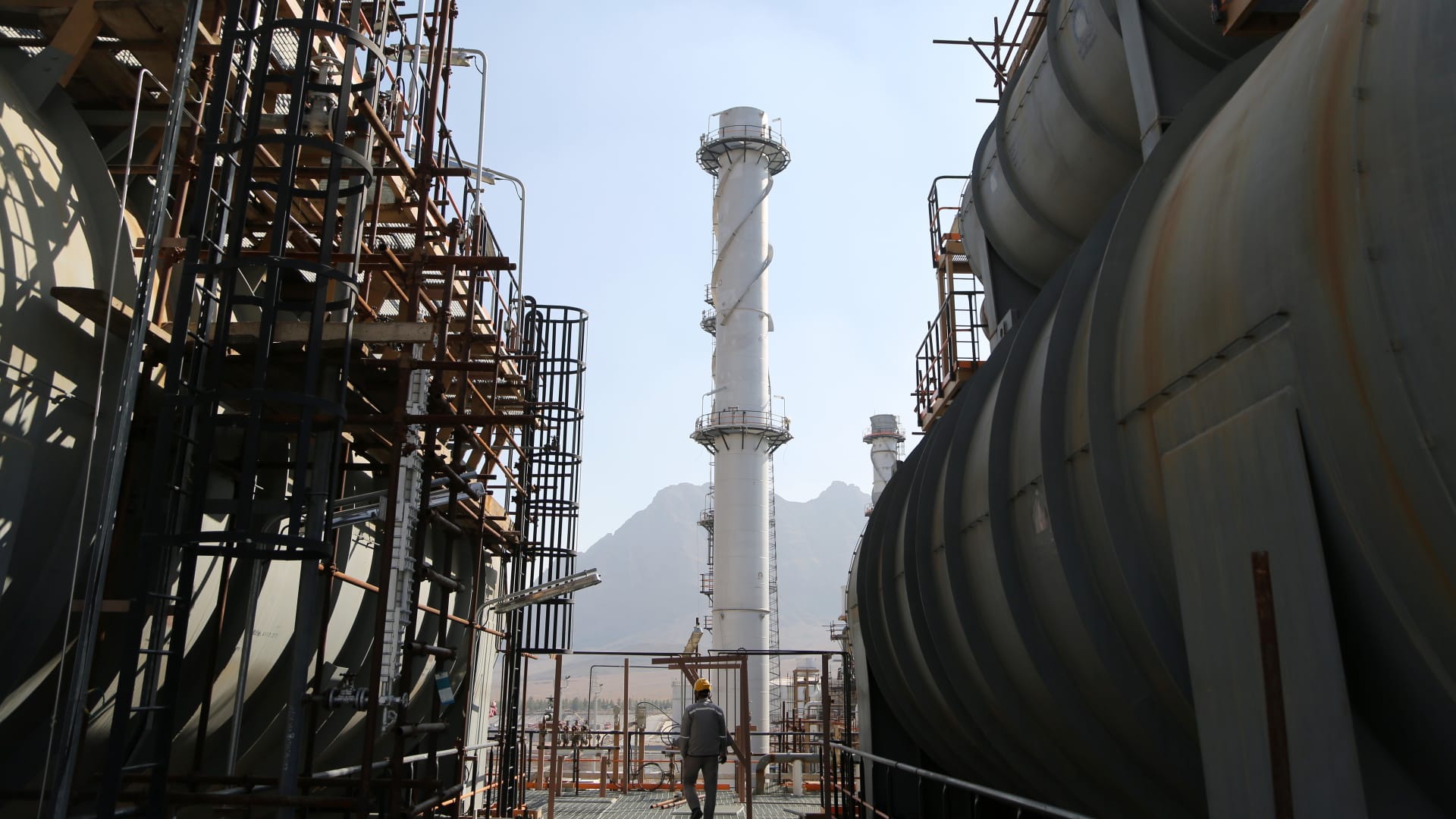U.S. crude oil moved 1% higher to nearly $83 a barrel Tuesday on optimism that weak manufacturing data could accelerate interest rate cuts.
U.S. manufacturing activity hit a four month low of 49.9 in March, according to the S&P Global Flash U.S. Composite PMI. A reading below 50 indicates that activity is contracting.
Oil prices turned higher on the data as traders see slowing manufacturing activity as support for the Federal Reserve cutting interest rates this year. Lower borrowing costs typically stimulate the economy and thereby crude demand.
Here are the latest energy prices:
- West Texas Intermediate June contract: $82.75 a barrel, up 85 cents, or 1.04%. U.S. crude oil is up 15.6% this year.
- Brent June contract: $87.82 a barrel, up 82 cents, or 0.94%. The global benchmark is up about 14% this year.
- RBOB Gasoline May contract: $2.71 a gallon, up 0.92%. Gasoline futures are up about 29% this year.
- Natural Gas May contract: $1.78 per thousand cubic feet, down 0.50%. Natural gas is down 29% this year.
Phil Flynn, senior market analyst at the Price Futures Group, said renewed hopes for rate cuts are “giving oil a new sense of life here, especially after it’s already sold off quite a bit.”
The move higher comes after WTI hit a session low of $80.89 a barrel earlier in the morning, the lowest level since late March. U.S. oil prices also briefly dipped below the 50-day moving average of $81.22 a barrel for the first time since early February.
U.S. oil prices are still more than $5 below this year’s high of $87.62, when traders bid up prices on fears of a war between Iran and Israel. Those concerns have largely dissipated as Iran and Israel have signaled they are not interested in a wider war after trading tit-for-tat strikes earlier this month.

WTI Vs. Brent
Iran sanctions ‘a farce’
The oil market has also largely brushed off the threat of additional sanctions against Iranian oil.
The House of Representatives passed legislation over the weekend that would broaden sanctions against Iran’s oil exports to include foreign ports, vessels and refineries that knowingly process crude from the Islamic Republic. The Senate could vote on the bill as soon as this week.
Under terms of the legislation, President Joe Biden would implement sanctions within 180 days of the bill’s passage, but has the authority to waive penalties if he determines it is in the national security interests of the U.S.
“This bill significantly increases sanctions on Iran, it increases the enforcement mechanisms,” Helima Croft, commodities strategist with RBC Capital Markets, told CNBC’s “Squawk Box” on Monday.
The White House will face a “tough choice” this summer on whether to impose the sanctions or issue waivers due to concerns about a tight oil market, Croft said. The sanctions, if fully implemented, could contribute to higher gas prices.
“Biden’s not going to pull the trigger ahead of the election because he can’t afford to have gasoline prices go up before for the election,” Flynn said. “It’s kind of a farce.”
The Biden administration is very concerned about high oil prices ahead of the 2024 election, said Amrita Sen, founder and director of research at Energy Aspects.
“It’s a U.S. election year, and the U.S. is going to do absolutely anything in its power to make sure prices don’t go up,” Sen told CNBC’s “Crude Realities” on Tuesday.

